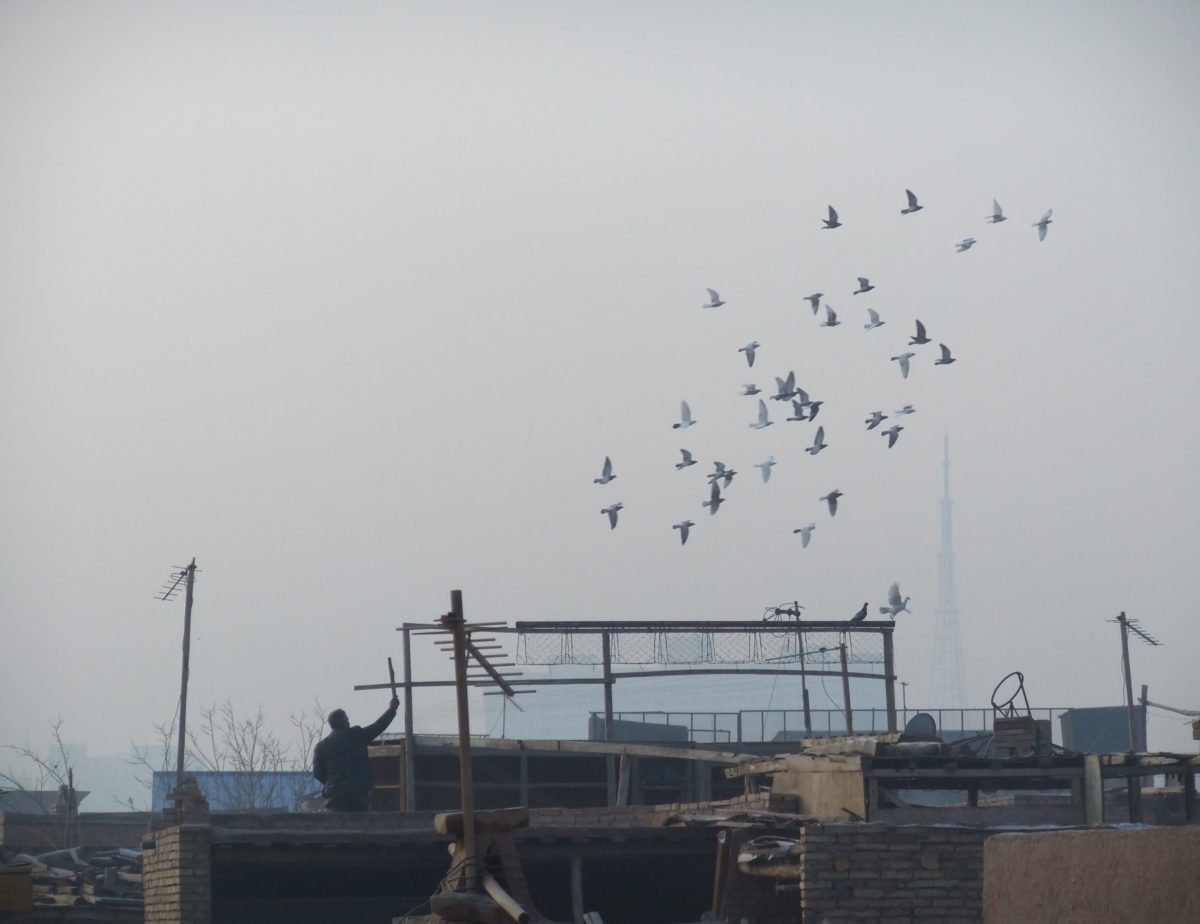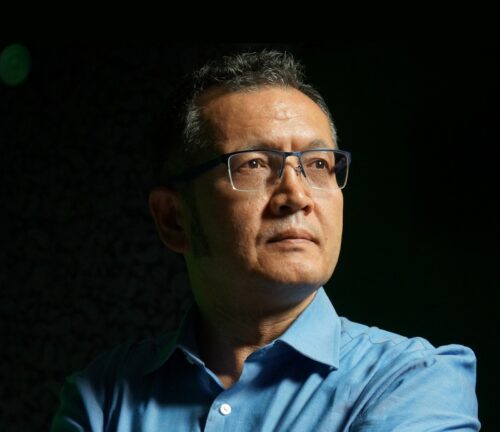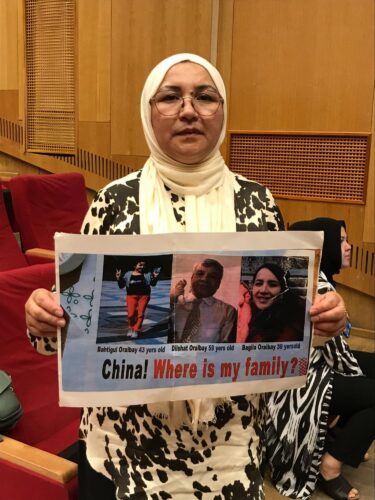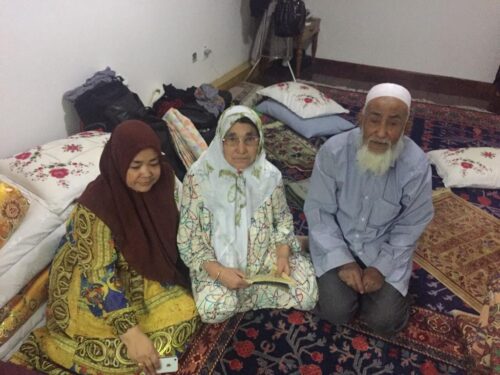A Uyghur family fled and Beijing followed, pushing for prison and extradition in Turkey and Morocco
The precarious life of a Uyghur family in exile.

Zeynure, 29, a Uyghur mother of three exiled in Istanbul, spoke to The China Project in June about the challenges of building a stable life after fleeing Xinjiang to escape genocide, as Beijing keeps up pressure to silence her husband.
Upon arrival in Turkey in 2013, the young couple were given a two-year, renewable humanitarian visa. Zeynure’s husband, Idris Hasan, set up a small graphic design firm called Shabnam — Uyghur for “Dew” — and began to publish, with friends, a newsletter of the same name filled with useful information for their community of exiles.
Turkey is home to more than 50,000 Uyghur refugees who have made the country their home since political upheavals began in China in the early 1950s.The latest wave arrived between 2015 and 2017, following an official crackdown on Uyghur culture in Xinjiang, an area in northwest China roughly the size of Alaska.
In 2014, when Idris applied for Turkish permanent residence for his family, local police detained him, pressured, Zeynure said, by China, where authorities claimed he was a national security threat. After two weeks, Idris was released, but for the next seven years, he was detained repeatedly without explanation, often for months at a time.
Zeynure’s two-bedroom apartment in suburban Istanbul is filled with her children’s toys. As she sifts through a mountain of paperwork connected with their father’s case, the three kids run in and out, jumping on a small trampoline and scribbling new vocabulary words in three languages on a large whiteboard.
Their mother is keen that they keep up their Uyghur, her tongue, even as she insists they not fall behind in Turkish and the English that will gain importance as they move through the world.
In 2016, during one of Idris’s periods free from detention, Zeynure’s parents came to Istanbul to visit their growing family for two weeks. After they went back to China, she called them and an uncle answered the phone. He told Zeynure that he was looking after the family sheep while her parents were away “studying,” using code for their having been sent to one of the hundreds of reeducation camps China established to stamp out Uyghur culture. Since then, Zeynure has had no news of her parents.
“I don’t know whether they are alive or dead,” she said.
Zeynure puts on a brave face, evenly recounting her parents’ disappearance, Idris’s multiple arrests, and the long stretches of not knowing where he was and what might be happening to him at a series of detention centers around Turkey: first in Istanbul, then in Kayseri, next in Erzurum, and finally back in Istanbul’s Kumkapi quarter.
His first arrest happened in 2014, while getting a health check as a part of his application for Turkish permanent residence for the family. Zeynure stopped nearby to feed their first child, Abdulkerim, then three months old. When Idris failed to return, she panicked. She was alone with an infant in a strange city and had no idea how to find her way home.
Abdulkerim is now nine years old. His younger sisters are Nefise, born in July 2016, and Uyguray, born in June 2019. In their short lives, they have seen their father come and go without explanation. Zeynure has learned to numb her emotions.
“I have had to be strong for the children,” she said.
Turkey as haven
Zeynure and Idris both came from families that valued education, hers from the south of the Xinjiang Uyghur Autonomous Region, his from the north. Both left the Uyghur homeland on scholarships to study at universities in China’s interior. She earned a diploma in nursing and Idris got his degree in chemistry.
At colleges in third-tier Chinese cities where Uyghurs like them were in the minority, Zeynure and Idris were allowed to practice their religion. She covered her head and wore a long dress. Both visited mosques near campus to pray. She was comforted that both Han Chinese students and staff respected her faith.
Starting around 2011, as Beijing’s policies restricting Islamic observance descended on their hometowns in Xinjiang, Zeynure and Idris each came to the realization that if they wished to continue to practice their faith, they would have to leave China.
A common friend who noticed they shared the same ambition arranged a blind date near Zeynure’s hometown of Kashgar. Idris traveled more than 600 miles to meet the 19-year-old stranger, whose piety and longing to leave China attracted him.
“We were so young and shy then,” Zeynure said, laughing as she recounted sitting opposite each other with their heads down, hardly daring to look up. “In our culture, girls and boys rarely meet alone before marriage, especially in my village. We had nothing to say and just ended up talking about the person who introduced us.”
When the meeting ended, Zeynure had no idea what impression she’d made on Idris as he stood for his long journey home.
“He didn’t say anything to me,” she said.
When Idris called her to suggest they marry, Zeynure agreed immediately. The main draw was his wish to leave China and start afresh somewhere else.
A simple wedding followed and they were on their way. She left via Egypt and he via Malaysia, with a plan to meet in Turkey.
Dreams dashed
In and out of detention in Turkey all the way through the COVID pandemic, Idris and Zeynure, like many Uyghurs in Turkey, lived in fear that politicians in Ankara were under pressure to hand Uyghurs over to China in exchange for the vaccine. There was talk that Turkey could ratify a proposed extradition treaty with China at any time.
In 2021, the stress became too great and Idris bought a ticket to Morocco that required no visa, hoping that from there he could get to Europe and build a life free from China’s global influence for Zeynure and their young children.
Zeynure explained that despite Idris’s departure from Turkey, the Chinese state had not finished with him. When he landed in North Africa, Moroccan police arrested him, choosing to honor an Interpol Red Notice issued by Beijing.
Red Notice requests intended to catch bona fide criminals fleeing justice in their own lands are prone to abuse, according to a panel convened recently in the U.K. The notices, served by law enforcement worldwide to locate and provisionally arrest a person pending extradition, have been misused by states such as Russia and China to rein in persons deemed enemies of the state, often with very little proof of criminality.
In 2022, a Casablanca court annulled the Red Notice against Idris, citing a lack of evidence to support Beijing’s claims. Still, 23 months after his arrest by Moroccan authorities, Idris remains in prison in Tiflet, 40 miles east of the capital, Rabat, where politicians squabble over his fate with Chinese authorities a continent away.
Zeynure said that her husband’s calls to her are more despondent with each week that passes and that Moroccan prison guards continue regular threats of extradition to China.
Editor’s Note: The translation of the name of the design firm Shabnam has been corrected from “hope” to “dew.”






